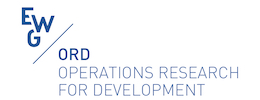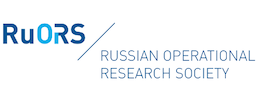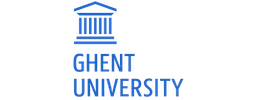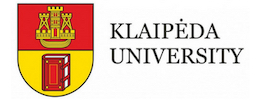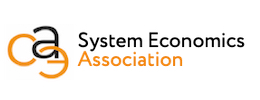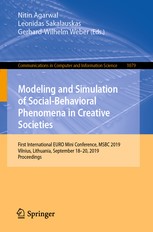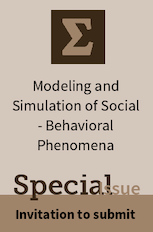Application of computational models to study issues in the social sciences and humanities has been undergoing rapid development during the last decades. The conference MSBC-2022 aims to create an open panel for the effective dialogue among researchers and practitioners interested in the integration of computer science in social science and humanities, for strengthening the visibility, recognition and understanding of problems of simulation and modelling of socio-economic reality.
Welcome to the conference
“Modelling and Simulation of Social-Behavioural Phenomena in Creative Societies – 2022”

Scope of the Conference
Due to its interdisciplinary flavour, this conference brings together researchers from the areas of social sciences and humanities (e.g. organizational science, communicative action theory, management science, contemporary economic science, societal complexity, sociology, media research, and others), operations research, computational intelligence, agent-based simulation, applied mathematics, econophysics and their respective fields of applications.
HISTORY OF THE CONFERENCE
Modelling and Simulation of Social-Behavioural Phenomena in Creative Societies (MSBC-2019)
International Conference - EURO Mini ConferenceOffical Website Link
Vilnius, LithuaniaModelling and Simulation of Social-Behavioural Phenomena in Creative Societies (MSBC-2022)
Modelling and Simulation of Social-Behavioural Phenomena in Creative Societies (MSBC-2024)
INTERNATIONAL PROGRAMME COMMITTEE

Prof. Dr. Nitin Agarwal,
University of Arkansas at Little Rock, USA
Chairman
Members of International Programme Committee
– Prof. Fuad Aleskerov, Higher School of Economics, Russia
– Prof. Dr. Elena Andreeva, Hanover Medical School, Germany
– Prof Dr. Akaki Arsenashvili, Tbilisi State University, Georgia
– Prof. Dr. George Arthopoulos, Cyprus Institute, Cyprus
– Prof. Adil Bagirov, Federation University Australia, Australia
– Prof. Dr. Alexis Belianin, Higher School of Economics, Russia
– Prof. Dr. Jens Bley, University of Hamburg, Germany
– Prof. Dr. Harvey Brenner, University of North Texas, USA
– Prof. Dr. Cathal MacSwiney Brugha, University College Dublin, Ireland
– Prof. Vitalijus Denisovas, Klaipeda University, Lithuania
– Prof. Dorien DeTombe, EWG on Ethics and OR, Netherlands
– Dr. Yan Jun, China University of Petroleum (Beijing), China
– Prof. Dr. Ismo Koponen, University of Helsinki, Finland
– Prof. Suria Kumacheva, St. Petersburg State University, Russia
– Prof. Dr. Walter Leal Filho, Hamburg University of Applied Sciences, Germany
– Prof. Nelson Maculan, University Federal of Rio de Janeiro, Brasil
– Prof. Oleksandr Makarenko, Kyiv Technical University, Ukraine
– Prof. Dr. Vladimir Mazalov, Petrozavodsk University, Russia
– Dr. Zhinan Wang, Harbin Engineering University, China
– Prof. Dr. Marianne Ping-Huang, University of Aarhus, Denmark
– Dr. Maxim Rybachuk, Financial University, Russia
– Prof. Leonidas Sakalauskas, Vilnius Gediminas Technical University, Lithuania
– Prof. Dr. Svetlana Shchepetova, Financial University, Russia
– Prof. Roman Slowinski, Poznan University of Technology, Poland
– Prof. Alina Steblyanskaya, Harbin Engineering University, China
– Prof. Alexis Tsoukias, Paris Dauphine University, France
– Prof. Adilson Xavier, University Federal Rio de Janeiro, Brasil
ORGANISING COMMITTEE

Prof. Leonidas Sakalauskas,
Vilnius Gediminas Technical University, Lithuania
Chairman
Members of Organising Committee
– Vytautas Dulskis, Vilnius University, Lithuania
– Vladimir Mazalov, Institute of Applied Mathematical Research, KarRC of the RAS, Russia
– Maxim Rybachuk, Financial University, Russia
– Leonidas Sakalauskas, Klaipeda University, Lithuania
– Alina Steblyanskaya, Harbin Engineering University, China
– Katerina Shulla, Hamburg University of Applied Sciences, Germany
INVITED SPEAKERS

Prof. Leonidas Sakalauskas,
Vilnius Gediminas Technical University, Lithuania

Dr. Zhinan Wang,
Harbin Engineering University,
China

Prof. Dr. Nitin Agarwal,
University of Arkansas at Little Rock, USA

Prof. Dr. Vladimir Mazalov,
Institute of Applied Mathematical Research, KarRC of the RAS, Russia

Prof. Dr. Walter Leal,
Hamburg University of Applied Sciences, Germany

Prof. Dr. Yaroslav Sergeyev,
University of Calabria,
Italy
PROGRAMME OF THE CONFERENCE
Invited Lectures
- Dorien DeTombe (International Research Society on Methodology of Societal Complexity, Netherlands)

Leonidas Sakalauskas
(Vilnius, Lithuania)
Prof. Leonidas Sakalauskas,
Vilnius Gediminas Technical University, Lithuania
Operational Research behind modeling and simulation of social-behavioural phenomena in creative societies
The application of computational models to study issues in the social sciences and humanities has been undergoing rapid development during the last decades. OR was heavily and effectively used throughout the many historical courses, emphasizing the role of game theory and rational decision making in shaping the strategic thinking in politics and business. It is natural to assume that in the current historical time, when many delicate socio-political challenges have to be dealt with once again, it is important to resort to OR to overcome those challenges.
The operationalisation of social-behavioural phenomena, appearing in nowadays life, in order to develop a paradigm of rational choice for the efficient understanding of their nature and relevant decision making, enables bridging OR with social sciences and humanities. The creation of such a paradigm on the basis of the theory of structural equation modelling (SEM), multi-agent modelling and game theory, together with data science and mathematical sociology methods, allows the development of data-driven operationalisation for evidence-based solutions.

Zhinan Wang
(Harbin, China)
Dr. Zhinan Wang,
Harbin Engineering University, China
Belt and Road’ modelling and simulation cases under Business statistics course framework
China’s Belt and Road Initiative (BRI) is a massive development plan in scale and scope. It aims at facilitating China’s connectivity with the rest of the world through trade, investment, and infrastructure projects. Therefore, understanding the human and social dynamics and socio-behavioral tendencies through Belt and Road development, and quantifying, and mapping the spatial-temporal distribution of environmental vulnerability caused by natural and man-made impacts are needed for understanding environmental protection and Road restoration issues. Understanding the trends in ecological, cultural and behavioural evolution and their driving factors is critical to revealing changes in ecosystem's structure and function. However, less is known about the nonlinear relationship between greening trends and statistical instrumentation.
Thus, we want to share with you HEU experience concerning new Business Statistics course implementation. In the example of a practical case concerning Belt and Road initiative development, we show for students modeling processes, the students should learn how to calculate probability and its distributions and understand their implementations. On the example of Belt and Road cases, we show the students the essential concepts of Business Statistics course, and some techniques of descriptive statistics. We focus on organizing data by visualization and analyzing data by some numerical measurements. After learning descriptive statistics, the students guided to a miraculous probability and sampling world. They are the foundation of statistical inference. We will begin with the historic outlook of probability to help us remember the probability theory. We also learn sampling to collect data and the theorems of sampling distribution. After that we finally come to the inferential statistics. Parameter estimation and hypothesis testing are the primary knowledge that we will mainly discuss. Students master how to use the sample data to estimate or to test the population with the desired reliability.
Coffee Break

(S1) Models of interaction between diverse social systems – Part 1
- Maksim Rybachuk (Financial University, Russia)
- 11.20 – 11.45. Victor Byvshev (Financial University, Russia), The econometric modeling of the adaptation of the Russian economy to the sanctions of Western countries
Download - 11.45 – 12.10. Dorien DeTombe (International Research Society on Methodology of Societal Complexity,
Netherlands), Compram methodology support for complex policy making
Download - 12.10 – 12.35. Artem Denisov (Kostroma State University, Russia; Saint-Petersburg Electrotechnical University, Russia), Applying improved Free Disposal Hull methodology to manage effective social development
Download
Coffee Break
(S2) Models of interaction between diverse social systems – Part 2
- Maksim Rybachuk (Financial University, Russia)
- 14.00 – 14.25. Alexandr Mishchenko (Higher School of Economics, Russia), Oleg Kosorukov (Lomonosov Moscow State University, Russia; Higher School of Economics, Russia) and Olga Sviridova (Financial University, Russia), Dynamic models of transport resources management
Download - 14.25 – 14.50. Junrui Yu (Harbin Engineering University, China), Reverse spillover effect of cross-border M & A and upgrading of manufacturing industry in global value chain
Download - 14.50 – 15.15. Maksim Rybachuk (Financial University, Russia), Behavioral model of interaction between economic agents and the institutional environment
Download - 15.15 – 15.40. Alina Steblyanskaya (Harbin Engineering University, China), China Economic Sustainable Growth and Wilderness conservation: how to stop devastated the Earth surface?
Download
Coffee Break

(S3) Structural equation modelling behind operationalization
- Leonidas Sakalauskas (Vilnius Gediminas Technical University, Lithuania)
- 16.10 – 16.35. Leonidas Sakalauskas (Vilnius Gediminas Technical University, Lithuania), Structural equation modelling behind operationalisation in the social sciences and humanities
Download - 16.35 – 17.00. Vytautas Dulskis (Vilnius University, Lithuania), Efficient Maximum Likelihood Batch Estimation With Pure Time Series Data of a One-Dimensional Cumulative Structural Equation Model
Download - 17.00 – 17.25. Mindaugas Jakutis (Vilnius University, Lithuania), Indicators of Ethnic and Civic Nationality
Download
Welcome Party
Registration
Invited Lectures
- Leonidas Sakalauskas (Vilnius Gediminas Technical University, Lithuania)

Nitin Agarwal
(Little Rock, USA)
Prof. Dr. Nitin Agarwal,
University of Arkansas at Little Rock, USA
Networks and Narratives Characterizing Multiplatform Influence
Campaigns to Strengthen Socio-cognitive Security
With the proliferation of smart devices, mobile applications, and social network platforms, the social side effects of these technologies have become more profound, especially in social and political disintegration. Several journalistic and academic investigations have reported that modern communication platforms such as social media are strategically used to coordinate cyber influence campaigns. Several researchers have studied these campaigns and identified various tactics, techniques, and procedures used by various online deviant groups, e.g., online propagandists groups or extremist/terrorist group sympathizers. Various social media platforms utilize research findings to detect and regulate some of these campaigns, however, the techniques that are used evolve and adapt to go undetected. This is a growing problem. This session aims to have a scientific discussion among experts who study deviant activities on social media, including but not limited to, detection of deviant/disruptive behaviors on social media; misinformation detection, identification, and dissemination; case studies of misinformation; etc.
This includes the following topics:
- Misinformation, disinformation, rumor, propaganda, influence campaign detection;
- Tactics and strategies used to conduct misinformation;
disinformation, rumor, propaganda, influence campaigns;
- Deviant behaviors on social media platforms (cyber threats, cybercrime, cyber bullying, trolling, spamming, etc.);
- Coordination campaigns;
- Cyber Flash Mobs;
- Algorithmic manipulation such as exploiting recommendation bias;
- Detection/modeling of inorganic behaviors (bots, botnets, social bots, etc.) and their evolution dynamics;
- Hate Speech (toxic, polarizing, or disruptive content);
- Computational extraction of narratives used in misinformation, disinformation, rumor, propaganda, influence campaigns.

Vladimir Mazalov
(Petrozavodsk, Russia)
Vladimir Mazalov,
Institute of Applied Mathematical Research, KarRC of the RAS, Russia
Equilibrium in the strategic bargaining
The Rubinstein’s bargaining model, proposed in 1982, provided a convenient tool for solving game-theoretic problems about bidding by two persons with alternating offers on an infinite time axis. The main feature was the discounting factor d, which did not allow the game to last indefinitely, i.e. the closer d is to 0, the more impatient the players are and the faster they will agree to any offer. On the contrary, if the value d is close to 1, then the players are patient and will negotiate until they come to the most favorable offer for them. In [Baron, Ferejohn, 1989], a model of sequential multilateral negotiations with a majority rule was proposed. The game that was reviewed is a standard game “split the dollar”, in which n players, whose turn is chosen randomly, make suggestions on how to divide a pie of a fixed size, and agreement requires the consent of a simple majority. It is shown that a sub-game perfect equilibrium exists in the class of stationary strategies. Then, articles [Eraslan, 2002; Cho, Duggan, 2003; Banks, Duggan, 2006; Predtetchinski, 2011; Cardona, Ponsati, 2007, 2011] were devoted to the expansion of this direction for different applied problems.
We present a game-theoretic model of competitive decision on a meeting time. There are n players who are negotiating the meeting time. The players' utilities are represented by linear unimodal functions. The maximum values of the utility functions are located at the points i/(n-1), i=0,...,n-1. The final decision will be done if all participants accept the proposal. Players take turns 1, then 2, then 3, …, n. We assume that after each negotiation session, the utility functions of all players will decrease proportionally to d. We will look for a solution in the class of stationary strategies, when it is assumed that the decisions of the players will not change during the negotiation time, i.e. the player i will make the same offer at step i and at subsequent steps n+i, 2n+i, etc. We use the backward induction method. To do this, assume that player n is looking for his best responce, knowing player 1's proposal, then player (n-1) is looking for his best responce, knowing player n's solution, etc. The subgame perfect equilibrium in the class of stationary strategies is found in analytical form.
Coffee Break

(S4) Complexity modelling for sustainable development goals – Part 1
- Alina Steblyanskaya (Harbin Engineering University, China)
- 11.20 – 11.45. Vladimor Bocharnikov (Pacific Geographical Institute Far-Eastern Branch,
Russian Academy of Sciences, Russia), Social Code in Contradictions of the Human Civilization Model in the Digital Age: Does Sustainable Development Goals will Work?
Download - 11.45 – 12.10. Boyu Liu (Jilin Railway Vocational University, China), China’s urban sustainable transportation policy under the goal of “carbon peaking and carbon neutrality”
Download - 12.10 – 12.35. Danial Shafique (Harbin Engineering University, China), Carbon Dioxide Emissions Reduction Efficiency and Growth Potential (A Case of Pakistan and China)
Download - 12.35 – 13.00. Saqib Jawad (Harbin Engineering University, China), A Study on the Impact of Mechanism of “Belt and Road Initiative” on the Sustainable Development of the China Pakistan Economic Corridor
Download
Coffee Break

(S5) Complexity modelling for sustainable development goals – Part 2
- Alina Steblyanskaya (Harbin Engineering University, China)
- 14.00 – 14.25. Jun Yan (China University of Petroleum (Beijing), China), The efficiency and resilience of China economy under the biophysical economic model point of view
Download - 14.25 – 14.50. Jialin Zhu (Jilin Railway Vocational College, China), Research on the evaluation of the core competitiveness of China Railway Companies and the promotion strategy
Download - 14.50 – 15.15. Alina Steblyanskaya (Harbin Engineering University, China), China carbon neutrality goal and growth potential system modeling
Download - 15.15 – 15.40. Maksim Vaslev (Harbin Engineering University, China), How Coronavirus Pandemics (COVID-19) Influences Chinese Economic Sustainability
Download
Coffee Break
(S6) Statistical Data Analysis in Social Research
- Daiva Bubelienė (Kaunas University of Applied Sciences, Lithuania)
- 16.10 – 16.35. Daiva Bubeliene (Kaunas University of Applied Sciences, Lithuania) and Gediminas Merkys (Vytautas Magnus University, Lithuania), Quantification of textual responses to open-ended questions in Big Data projects
Download - 16.35 – 17.00. Gediminas Merkys (Vytautas Magnus University, Lithuania) and Daiva Bubeliene (Kaunas University of Applied Sciences, Lithuania), Likert Means versus Yes Percentages? Optimal representation of survey results at the level of psychometric scales
Download - 17.00 – 17.25. Timofei Nestik (Institute of psychology, Russian Academy of Sciences, Russia), Vladimir Bochkarev (Kazan Federal University, Russia) and Vera Levina (Peoples’ Friendship University of Russia, Russia), Dynamics of the long-term orientation in Russian society over the past 100 years: results of the analysis of the Russian subcorpus of Google Books Ngram
Download
Conference Dinner
Registration
Invited Lectures
- Gerhard-Wilhelm Weber (Poznan University of Technology, Poland)

Walter Leal
(Hamburg, Germany)
Prof. Dr. Walter Leal,
Hamburg University of Applied Sciences, Germany
Education for sustainable development: trends and perspectives
The presentation will outline the importance of and relevance of sustainable development for higher education institutions, and outlines some of the steps which are being taken, to include it as part of university programmes.

Yaroslav Sergeyev
(Rende, Italy)
Prof. Dr. Yaroslav Sergeyev,
University of Calabria, Italy
Numerical infinities and infinitesimals
How primitive counting systems can change our perception of Infinity
In this lecture, some classical paradoxes of infinity such as Galileo’s paradox, Hilbert’s paradox of the Grand Hotel, and the rectangle paradox of Torricelli are considered. It is shown that the surprising counting systems of Amazonian and Australian tribes, working with only three numerals (one, two, many) can help us to change our perception of these paradoxes. A recently introduced methodology allowing one to work with finite, infinite, and infinitesimal numbers in a unique computational framework not only theoretically but also numerically is briefly described (see [1]). This methodology is actively used nowadays in numerous applications in pure and applied mathematics and computer science as well as in teaching (see, e.g., [1-3]). This methodology gives the possibility to consider the paradoxes listed above in a new constructive light (see, e.g., [4,5]) showing so that even primitive cultures can give rise to very interesting developments in the modern sophisticated cultural and scientific life.
The Infinity Calculator using the Infinity Computer technology (patented in several countries) is presented during the talk. Reviews, videos, more than 60 papers of authors from several research areas using this methodology in their applications can be downloaded from http://www.theinfinitycomputer.com. The web page https://www.numericalinfinities.com developed at the University of East Anglia contains materials related to teaching this methodology in colleges in UK and Italy.
Selected references
- Sergeyev Ya.D. (2017). Numerical infinities and infinitesimals: Methodology, applications, and repercussions on two Hilbert problems, EMS Surveys in Mathematical Sciences, 4(2), 219–320.
- Sergeyev Ya.D., De Leone R. (eds.). (2022). Numerical Infinities and Infinitesimals in Optimization, Springer.
- Nasr L. (2022). The effect of Arithmetic of Infinity Methodology on students’ beliefs of infinity, Mediterranean Journal for Research in Mathematics Education, 19, 5-19.
- Rizza D. (2018). A study of mathematical determination through Bertrand’s Paradox, Philosophia Mathematica, 26(3), 375–395.
- Sergeyev Ya.D. (2022). Some paradoxes of infinity revisited, Mediterranean Journal of Mathematics, 19, article 143.
Coffee Break

(S7) Evidence-based modeling
- Vladimir Gisin (Financial University, Russia)
- 11.20 – 11.45. Vladimir Gisin (Financial University, Russia), Efficient market hypothesis, efficient computability hypothesis and Minsky’s financial instability hypothesis (EMH, P=NP, FIH)
Download - 11.45 – 12.10. Olga Pyrkina (Financial University, Russia) and Andrey Yudanov (Financial University, Russia), Free-rider Problem: Simulating of System Convergence to Stable Equilibrium State by Means of Finite Markov Chain Models
Download - 12.10 – 12.35. Mingzhen Huang (Harbin Engineering University, China), Will the "failure tolerance" of executives affect the total factor productivity of enterprises —— On the adjustment effect of board structure
Download - 12.35 – 13.00. Changxu Duan (Harbin Engineering University, China), Research on prediction of highly cited papers based on PCA-BPNN
Download
Coffee Break

(S8) Behavioral Game Theory
- Vladimir Mazalov (KarRC of the RAS, Russia)
- Suria Kumacheva (St. Petersburg State University, Russia)
- 14.00 – 14.25. Denis Kuzyutin (St. Petersburg State University, Russia; Higher School of Economics, Russia), Nadezhda Smirnova (Higher School of Economics, Russia; St. Petersburg State University, Russia) and Elizaveta Tantlevskaya (St. Petersburg State University, Russia), Modelling of cooperative behavior in multistage game of renewable resource extraction
Download - 14.25 – 14.50. Olga Gorbaneva (Southern Federal University, Russia) and Guennady Ougolnitsky (Southern Federal University, Russia), Cognitive Simulation Model of the Regional Education System
Download - 14.50 – 15.15. Gerhard-Wilhelm Weber (Poznan University of Technology, Poland). A Dynamic Programming Approach for a Nonzero Sum Stochastic Differential Game Problem
Download
Coffee Break

(S9) Modelling of Complex Societal Problems
- Leonidas Sakalauskas (Vilnius Gediminas Technical University, Lithuania)
- 16.10 – 16.35. Suriya Kumacheva (St. Petersburg State University, Russia), Ekaterina Zhitkova (St. Petersburg State University, Russia) and Galina Tomilina (EPAM System Inc., Russia), Attitudes to Vaccination: How the Opinion Dynamics Affect the Influenza Epidemic Process
Download - 16.35 – 17.00. Alexander Makarenko (National Technical University of Ukraine (Igor Sykorski Kiev Politechnic Institute), Ukraine) Operational Research for Sustainable Development in Usual and Crisis Situations of Social Systems
Download - 17.00 – 17.25. Vladislav Taynitskiy (St. Petersburg State University, Russia), Elena Gubar (St. Petersburg State University, Russia), Laura Policardo (The Customs and Monopolies Agency (Agenzia delle Dogane e dei Monopoli), Sesto Fiorentino, Italy) and Edgar J. S´anchez Carrera (University of Urbino Carlo Bo, Italy; Autonomous University of Coahuila, Mexico), Optimal lockdown policies in epidemic processes with demographic structure
Download - 17.25 – 17.50. Vitalij Denisov (Klaipeda University, Lithuania), Aiste Dirzyte (Mykolas Romeris University, Lithuania) and Leonidas Sakalauskas (Klaipeda university, Lithuania), Modelling of Anxiety Spread During Pandemics
Download
Closing and Final Discussion
ABOUT PUBLICATIONS
We encourage researchers who are starting or developing their research related to computing and OR in social sciences to present their work for discussion and take part in the tutorials on the challenging topics of modelling and simulation of social-behavioural phenomena in creative societies.
The Proceedings of the conference were successfully published in Springer Conference Proceedings Series “Communications in Computer and Information Science” (CCIS).
Free online access is available from 07 June 2023 to 08 July 2023.
Participants can submit full papers on the conference topics for publication in the Special Issue of the top-rated journal Mathematics by MDPI.
In addition to the conference Proceedings and a special issue in the post-conference journal, a collective monograph on the subject of the conference topics will be published by a worldwide publisher. The title and content of the book will be announced before the conference.
BROADCAST OF THE CONFERENCE




